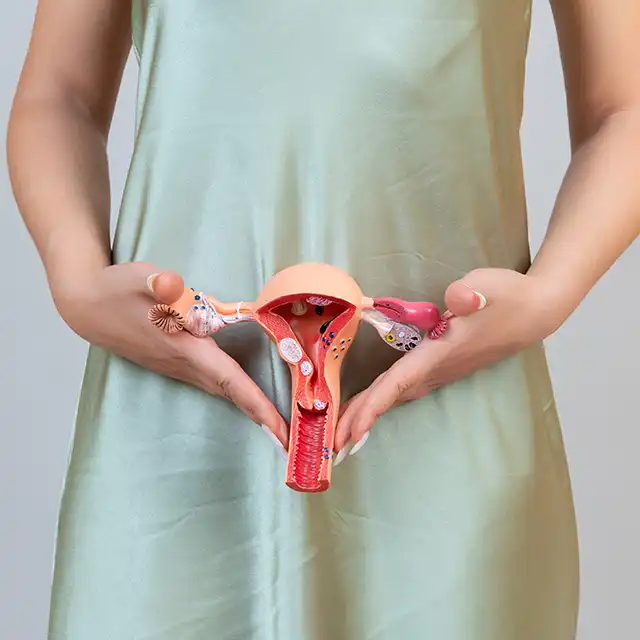
High blood pressure or hypertension is caused when the pressure of the blood exerted on the walls of the blood vessel (arteries) becomes high enough to cause health problems. Blood pressure is determined by the force or pressure of the blood in the arteries when the heart pumps out the blood (systolic pressure) and fills the heart (diastolic pressure).
Blood pressure is measured in millimetres of mercury (mmHg), with the format being systolic pressure/diastolic pressure. For example: 120/80 mmHg or just 120/80 (120mm systolic pressure over 80mm diastolic pressure) represents a normal level of blood pressure.
Symptoms
Since there are usually no symptoms for hypertension, it has been termed a ‘silent killer’. Most people are unaware of hypertension due to the absence of identifiers, making it important to get your blood pressure checked regularly.
A small proportion of people shows symptoms such as headache, shortness of breath, dizziness, chest pain, irregular heartbeats or nosebleeds. These symptoms must not be ignored — if you experience them, it is best to get your blood pressure checked.
Causes
The exact cause of hypertension in humans is not known. However, researchers and medical practitioners have broadly divided the condition into two types:
Primary or essential hypertension accounts for almost 95 per cent of cases in adults. While its cause is not identifiable, it is understood to be linked to environmental and genetic factors.
Some secondary factors causing hypertension are obesity, heredity and heart disease.
Secondary hypertension is any underlying factor that has a direct link to the cause of high blood pressure. Several illnesses or medications can lead to secondary hypertension. Some of them are:
- Kidney disease
- Diabetes mellitus
- Sleep disorder
- Adrenal gland tumor (pheochromocytoma)
- Medications such as oral contraceptives, cough and cold medicines, OTC pain relievers, herbal medicine containing licorice
- Thyroid problem
- Intake of drugs and toxins such as cocaine, amphetamines, alcohol or nicotine
- Pregnancy
- Obstructive sleep apnea (rare)
However, there are also miscellaneous causes of hypertension that occur in a specific scenario with recovery typically occurring within minutes to hours. These include:
- White coat hypertension, which causes someone’s blood pressure to rise when they visit a doctor
- Postural hypertension is caused when the blood pressure rises after we suddenly sit down from a lying position
Diagnosis
The method for diagnosis of hypertension varies from doctor to doctor. Most infer the diagnosis by comparing the measured systolic and diastolic pressure with those found in guidelines such as those of the Joint National Committee (JNC) or the American Heart Association.
Some doctors consider a patient to be hypertensive if their blood pressure is 140/90 mmHg or higher, while others consider 130/80 mmHg to be that threshold. In persons above the age of 50, it is important to focus on systolic pressure as they tend to have raised systolic pressure and normal diastolic pressure (isolated hypertension).
| Blood pressure classification | 7th report of JNC | American College of Cardiology | ||
| Systolic pressure (mmHg) | Diastolic pressure (mmHg) | Systolic pressure (mmHg) | Diastolic pressure (mmHg) | |
| Normal | <120 | <80 | <120 | <80 |
| Elevated/At risk (Prehypertension) | 120 – 139 | 80 – 89 | 120 – 129 | <80 |
| Stage-1 hypertension | 140 – 159 | 90 – 99 | 130 – 139 | 80 – 89 |
| Stage-2 hypertension | >160 | >100 | 140 or higher | 90 or higher |
| Hypertensive urgency/emergency * | >180 | >110 | >180 | >120 |
Blood pressure classification chart
*Hypertensive urgency is when there is no evidence of organ damage; hypertensive emergency is when there is evidence of damage to organs such as the heart, brain and kidneys
Sources: https://www.nhlbi.nih.gov/files/docs/guidelines/express.pdf; https://www.heart.org/en/health-topics/high-blood-pressure
Treatment
For some people, modifications to their lifestyle are enough to treat hypertension even if they are at risk of developing hypertension (prehypertension). Others, however, require medications to bring their blood pressure closer to the normal.
Lifestyle modifications to reduce blood pressure include:
- Following a Dietary Approach to Stop Hypertension (DASH) diet that provides daily and weekly nutrition goals
- Restricting salt intake to less than 5gm per day
- Giving up smoking tobacco products and drinking alcohol
- At least 30 minutes of aerobic exercise five to seven times a week
- Maintaining weight according to one’s body mass index (BMI)
- Limiting intake of sugars and sweetened beverages
- Eating fat-free foods, vegetables, fruits, and whole grains in a balanced amount daily
Oral medications can be used alone or in combination to remove excess water or sodium from the body, reduce the frequency of heartbeat, reduce the force of heart contractions, and widen the blood vessels. Some of these medications are:
- Diuretics that remove excess water and sodium from the body (furosemide, torsemide, spironolactone)
- Beta-blockers reduce the frequency and force of contraction of the heart (atenolol, propranolol, metoprolol)
- Angiotensin-converting enzymes inhibitors (ACEIs) widen or dilates the blood vessels (captopril, lisinopril)
- Angiotensin receptor blockers (ARBs) prevent the narrowing or constricting of blood vessels (losartan, olmesartan, telmisartan)
- Calcium channel blockers (CCBs) slow down the force and frequency of heart contraction, and widen blood vessels (amlodipine, verapamil, diltiazem)
- Alpha blockers block nerve signals to blood vessels that causes them to constrict (prazosin)
- Vasodilators widen the blood vessels (hydralazine, minoxidil)
Sources

















